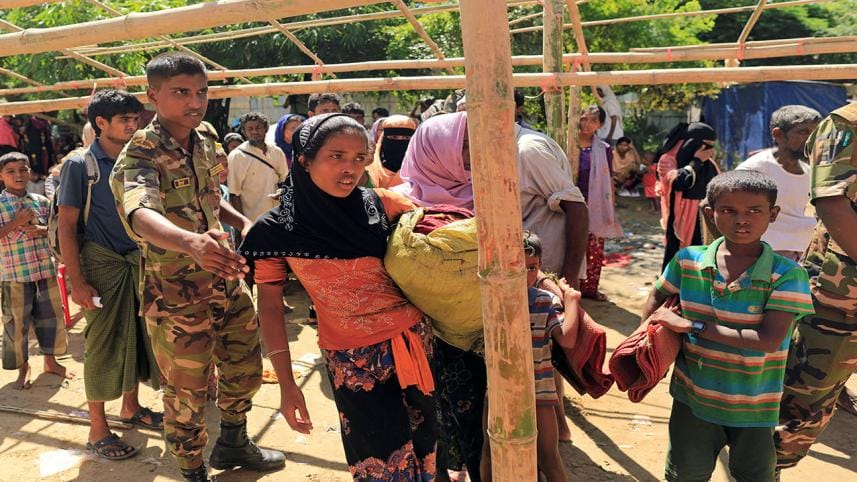Food relief to continue

World Food Programme will provide rice, pulse, oil and other daily necessities to Rohingyas well into next year.
Individual and private relief efforts are, however, on the wane as the crisis lingers.
On September 15, for example, government relief receiving and information centres in Teknaf registered 193 trucks laden with relief goods. The number gradually declined and only 68 trucks were registered on Wednesday.
As individual efforts are being exhausted, WFP's commitment appears to be a gleam of hope for refugees.
“We have an ongoing commitment to provide food for the Rohyinga refugees beyond next February,” Michael Dunford, WFP emergency coordinator in Bangladesh, told The Daily Star.
Mohammad Abul Kalam, relief and refugee repatriation commissioner (RRRC) of the disaster management ministry, said, “We had a meeting with WFP. They primarily committed to provide food for Rohingya people.”
Dunford said WFP has been providing diversified food baskets of rice, pulse and oil.
“WFP is pairing with NGOs to provide other non-cereal commodities as well.”
Meanwhile, Rohingyas are still entering the country through different points of the border making it really difficult to ensure an even distribution of relief goods.
“We will be able to complete their biometric registration once the influx stops. We will also issue e-voucher to all the Rohingyas,” Kalam said.
E-vouchers are cards that mention the amount of relief goods a family would receive a month. The government has been distributing the cards in the registered Rohingya camps.
Dunford said WFP will hopefully support 100,000 refugees with e-vouchers by the end of the year.
At Balukhali camp, The Daily Star found that refugees were not receiving equal amounts of relief goods.
“We got relief, but we do not know how far we will be able to sustain. We got rice. So I had to buy other necessities. I have no cash right now,” Abul Fayez, who lives in Thyangkhali camp of Teknaf, said.
Rohingya women and children sit on the ground by the side of the road between Shah Parir Dwip to Ukhia.
Aid workers and locals said they were sent by their husbands or parents for begging.
The refugees receive relief goods at 26 designated points. But they beg for money to be able to buy other things.
Many refugees said the things they receive from aid workers include rice, lentil, potatoes, sugar, water, oil, salt, blanket, milk, puffed rice and flour, kitchen utensils, umbrella, mosquito net, snacks, polythene sheets, water pot and some other daily necessities.

 For all latest news, follow The Daily Star's Google News channel.
For all latest news, follow The Daily Star's Google News channel.
Comments